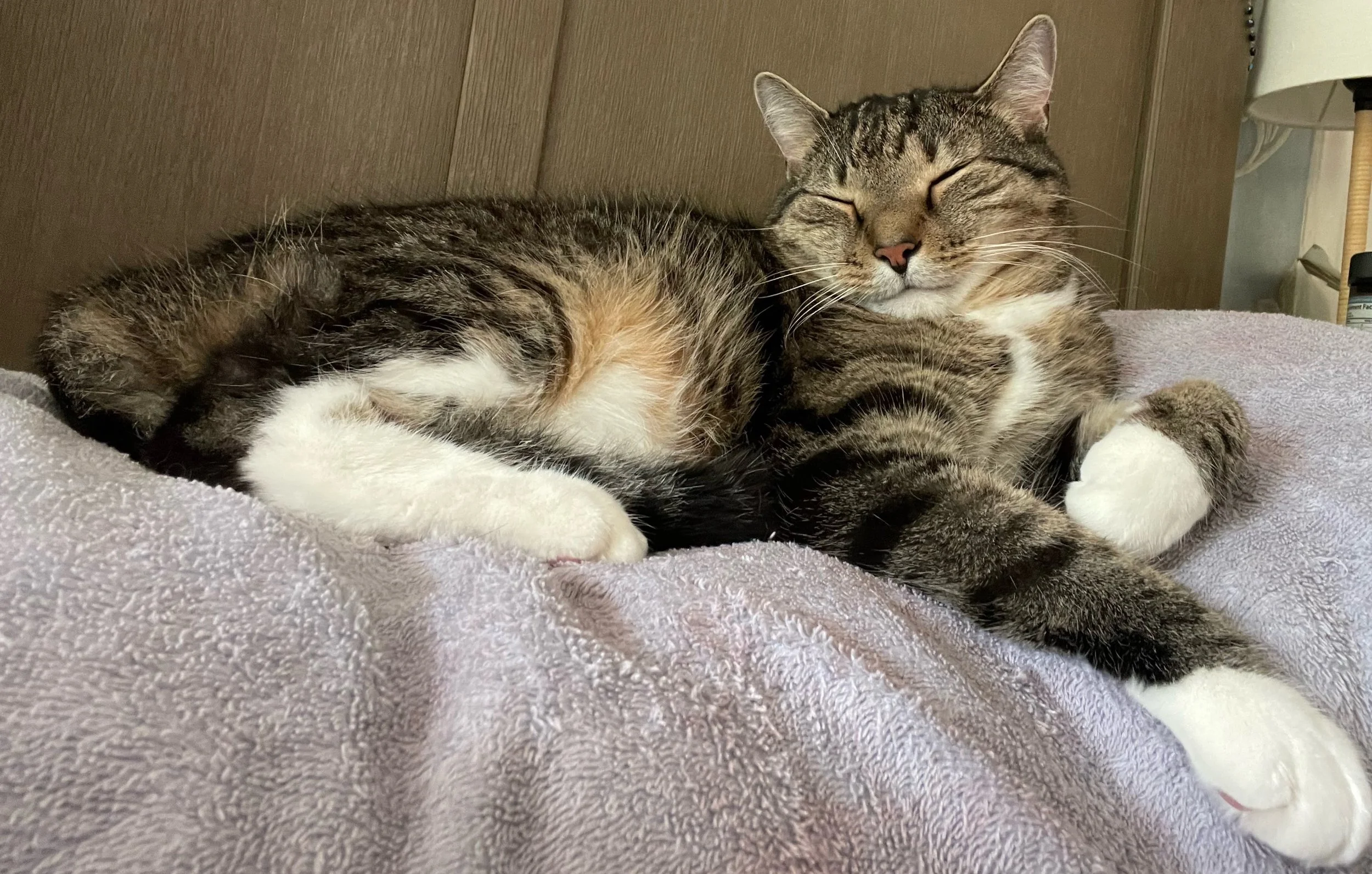You Too Can Sleep Like Felix!
My cat Felix never feels guilty about doing what he does best…..sleeping! For some, getting a good night’s sleep is rare. According to the National Institute of Health, “About 50 to 70 million Americans have sleep disorders, and 1 in 3 adults do not regularly get the recommended amount of uninterrupted sleep they need to protect their health.” You may think you can function on very little sleep, but your health and body will pay the price over time.
Quantity and quality of sleep are the pillars of good health. Here’s something to think about: Chronic insomnia affects your hormones and can lead to depression, anxiety, premature aging, heart disease, metabolism problems, obesity, and even cancer. Your body needs a rhythmic sleep cycle (circadian rhythm) to avoid disease, heal, and recharge.
The first step is creating a sleep routine and establishing good habits before bed. Following are some steps to help you get started:
Go to bed by 10 pm in a completely dark room and remove all devices.
Rise when the sun comes up. Going to bed early and rising early will align your body with its natural circadian rhythms, enabling you to heal and recharge.
Turn off the TV and avoid any negative or violent images. You don’t want to take those thoughts to bed with you.
Take a news fast. Given the polarizing and tumultuous times we are in, the news is making people angry and depressed, which affects sleep.
Reading is a great way to wind down, but make sure it’s a calming and soothing book for your soul. You can also listen to relaxing music or a guided meditation.
Do not drink caffeinated beverages or alcohol before sleep.
Get regular exercise during the day but not before bed.
Eat dinner by 6 p.m. and avoid snacking in the evening. This allows your body to fully digest before you go to sleep, which helps prevent indigestion, bloating, and discomfort, all of which can disturb sleep.
It is common to use over-the-counter medication to sleep. However, they can be addictive and interfere with cognitive function. Consider having a cup of relaxing tea before bed. Herbal teas like passionflower, lemon balm, lavender, chamomile, oat straw, and valerian promote a calm mind and help release stress. You can also find them as liquid tinctures in the herbal section of your health food store.
Sleep deprivation can also result from issues in your life. Try to recognize what is troubling you, realize you will not solve it overnight (literally), and put the day’s thoughts and troubles behind you. If this continues to be a problem, consider talking to a therapist.
Imagine the energy, focus, and overall well-being you could experience by making some changes. What is preventing you from taking action to improve your sleep?
Sleep well,
Maria

